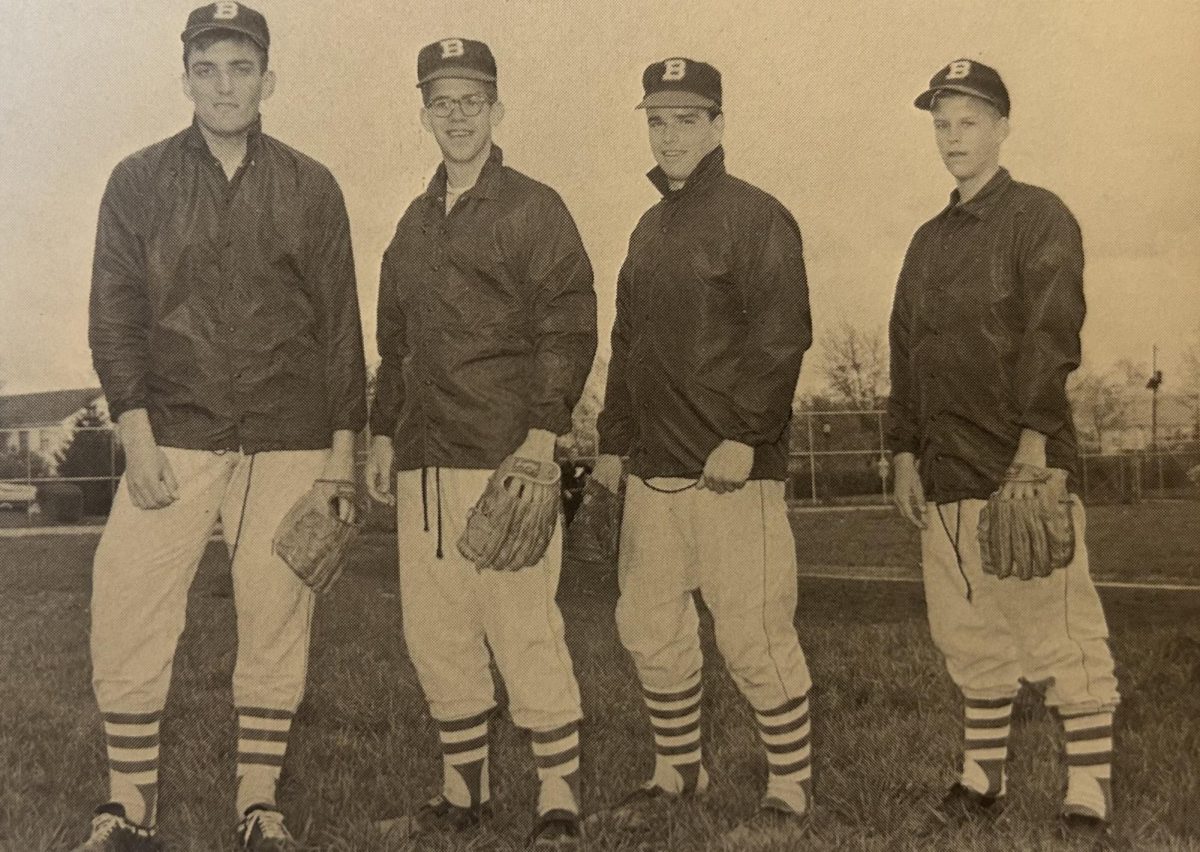The sport of football has been beloved by fans for generations. The intensity, culture and other aspects of the game combine to create a fast-paced entertainment for sports fans of all ages. But for fans looking for more ways to enjoy their favorite sport, fantasy football has provided an outlet that allows these fans to follow the game to another level.
Fantasy football is a game where you create your own team by drafting NFL players who score points based on their weekly performances in order to duel your leaguemates. You can trade, drop and add players on a weekly basis to create your ideal fantasy lineup. At the end of the season, leagues hold playoffs where the best team reigns champion.
NFL fanatic and self-proclaimed fantasy expert junior Stanford Brandt has been perfecting his fantasy football technique for years, Brandt said. At the age of 11-years-old, Brandt decided to join a league his brother was in and has been infatuated with it ever since, he explained.
“I really enjoy the high stakes of fantasy football where you can lose money and face a possible punishment,” Brandt added. “I also like that it puts a different perspective on football where you see it as an individual sport and not just a team sport.”
Brandt has taken part in many leagues throughout his life, but he said that his favorite one includes his 10 friends, and has been going strong for four years. Though he has yet to taste victory, Brandt has escaped losing a league so far, he said.
Brandt explained that his long-term strategy has been drafting running backs in bulk, coining himself “running back university.” He described that he uses this strategy because he believes that they are the most valuable position with their high usage, pass-catching ability and lack of running backs in later rounds.
Similar to Brandt, sophomore Alex Smith explained that his drafting approach varies from year to year, but his favorite strategy has been drafting running backs in the early stages and getting quarterbacks later on.
Smith said he started in 2018, and since then has taken part in a 12 team league with his friends each year.
“I like that you kind of get to feel like a coach,” Smith said. “You can pick the players you want and you can feel proud when your team does well.”
Brandt said that including a buy-in to a league makes it much more enjoyable for him.
“I have lost probably about $50 from fantasy,” Brandt explained. “But the years of enjoyment make it all worthwhile in the end.”
Though Smith doesn’t like to play for money, his league does a punishment each year, he said.
“My favorite punishment was when the loser was forced to start a lemonade stand, and he couldn’t stop until he sold $100 of lemonade,” Smith explained. “He had to stand in the heat every day selling 25 cent cups until he hit $100.”
It is a common tradition for leagues to not only include money as an incentive, but also a punishment, Brandt explained. This keeps the teams with losing records invested towards the end of the season so that they don’t receive the various punishments the league has designed.
Brandt added that he thinks punishments are essential to creating a good league.
“In my opinion, punishments are better when they cause embarrassment instead of physical pain for the loser,” Brandt said. “This year, my league is making the loser wear funny outfits to school for a week.”
Though Brandt is a die-hard Cincinnati Bengals fan, he rarely tries to draft Bengals’ players to his team, he said.
“I avoid drafting Bengals players because I think it’s a distraction,” Brandt said. “Like if I had Tee Higgins, I don’t want to watch Tee Higgins, I want to watch the Bengals.”
High school chemistry teacher Brandon Bright has been participating in fantasy football with his friends for 12 years. Though Bright said that he took a nine year hiatus from the league for family and school, he has been playing more than long enough to be considered an expert.
Bright’s league originally did paper drafts in its first years because there weren’t any apps like ESPN Fantasy that most leagues now use, he explained.
“We used a website called RtSports where you had to keep physical sheets, and you had to keep track of draft order,” Bright said. “Because of this, we have had years where people drafted guys who aren’t on teams currently, aren’t even in the league or were injured.”
Bright said his league chose to use this website because of its flexibility with league settings. For example, the common fantasy football roster consists of 16 players, but his league chooses to make their own unique rules, Bright said.
“We have a very deep roster with nine positional players,” Bright explained. “It’s a 23 man team so it’s almost like a dynasty league with the depth.”
Another unique aspect of the league, Bright explained, was that the winner got to choose the destination of their friends’ yearly trip, which the loser had to plan. They’ve gone to dozens of different cities such as Toronto, Salt Lake City, Charlotte and many more, he said.
Though Bright’s league does include a $200 buy-in, the winner doesn’t receive the sum of the pot like most other leagues, he said. Instead, they distribute the money based on weekly performances by each team, Bright explained.
“I figure $200 really isn’t that bad when it gives you a reason to keep in touch with friends and see each other,” Bright concluded. “[Fantasy football] is just one more way to maintain friendships, which gets hard when you get older, so I definitely wasn’t expecting to be talking to these guys years later.”















